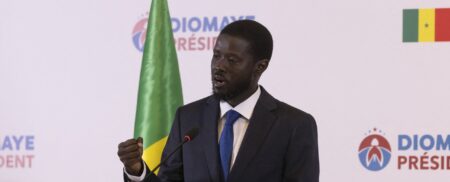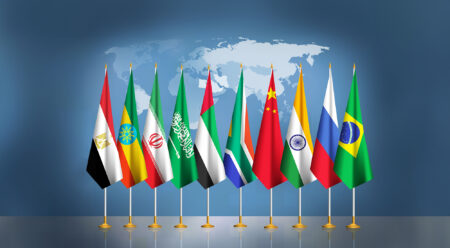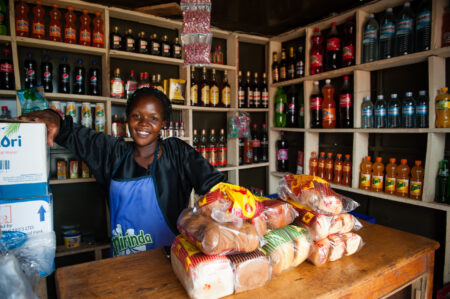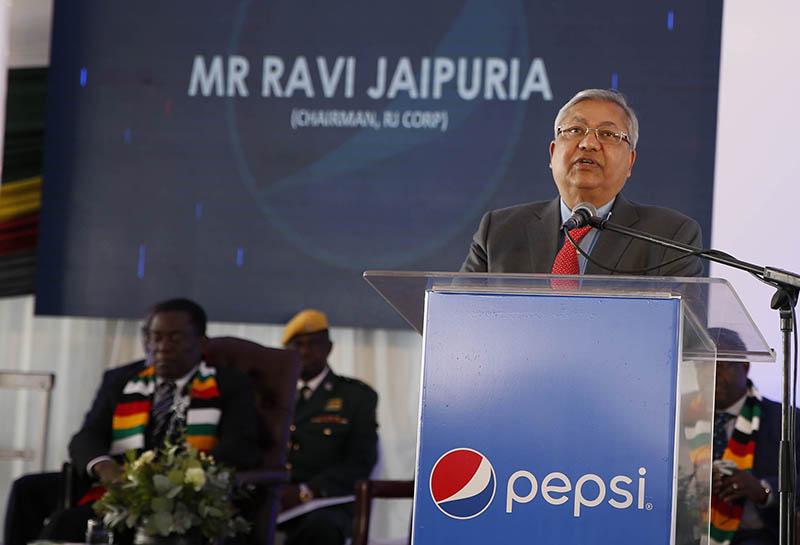
[NewZimbabwe]
- Varun Beverages has become one of the country’s biggest beverage firms in Zimbabwe
- Delta has had a firm grip on the Zimbabwean drinks market and is home to international brands of soft drinks and beers
- Varun is on an aggressive urban assault to capture more market share and challenge the drinks giant.
Varun Beverages has become one of the country’s bigger soft drinks firms in Zimbabwe within a relatively short period.
Bottlers of Pepsi, 7up and Mirinda brands, Varun has established itself as one of the soft drinks companies to reckon with in the soft drinks market.
This is an impressive achievement given it is going toe-to-toe with long-established Delta, Zimbabwe’s most prominent beverage firm with big brands such as Coca-Cola, Fanta and Sprite.
Since the colonial era, Delta has had a firm grip on the Zimbabwean drinks market and is home to international brands of soft drinks and beers. Over the years, it has focused on the alcohol market, which has seen occasions when certain once-popular brands have gone missing from the market. This has given Varun a window of opportunity to capture part of the market share in this highly lucrative segment.
Where has Delta dropped the ball?
The problem often with being so big means when there are challenges, they become glaringly obvious. Delta has found itself in an unenviable position of failing to satisfy market demands at various times over the years. These shortages have been most apparent during peak demand periods, such as the Christmas festive season
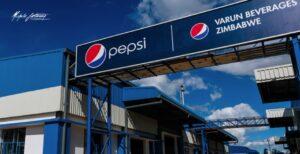
[newZWire]
This peak demand period has seen Delta focusing on the beer market, leaving the soft drinks market vulnerable primarily to encroachment competition. Zimbabweans are largely brand loyal people, but when there is no product on the shelf, many are forced to look for alternatives. For instance, there were reports of shortages of Coca-Cola in some parts of the country over the festive season. In some areas, only one brand, Cherry-plum, was available. These sporadic shortages have become regular as the drink’s giant grapples with supply chain issues.
The inconvenience of empty bottles
In a world that has turned to disposable bottles, Delta has stuck to its glass bottle concept. Whilst it is a hallmark of its brands, some challenges arise. A customer must bring in an empty glass bottle to buy a drink. This can be inconvenient when one wants a soft drink and does not have an empty bottle. This has seen most potential clients switching to Pepsi, which comes in a disposable plastic container. The feasibility of carrying an empty bottle in anticipation of buying a Coke is lost especially to the younger generation.
Varun understood the assignment
Pepsi is new to the market, and over the years, it was found in specialist shops serving a very niche market of ex-pats. However, this trend has changed as it has become so widely available you are most likely to see any ordinary Joe drinking a Pepsi instead of a Coke. In the sweltering summer heat, soft drinks sell in large quantities, and Varun, seeing this, cashed in on this segment. Such is the company’s success that it launched the concept of ‘culture cans’—the inclusion of iconic Zimbabwean features such as the Victoria Falls, Balancing Rocks and the Baobab tree on their Pepsi, & up and Mirinda brand cans. This was an initiative to connect with its clientele in Zimbabwe.
The growth in sales has not resulted from swanky marketing promotions and gimmicks. There has been some solid groundwork going on behind the scenes. In previous years, new entrants into the market focused on the urban areas. The moment one went into the rural areas one would be hard-pressed to find the product. This fell into Delta’s hands as they have a nationwide foot stamp, and you will find their brands in every single shop in the country. Varun has adopted a similar approach, and you will find a Pepsi in every single supermarket, general dealer and tuck shop in the country. This has left Delta with no breathing room and feeling the heat.
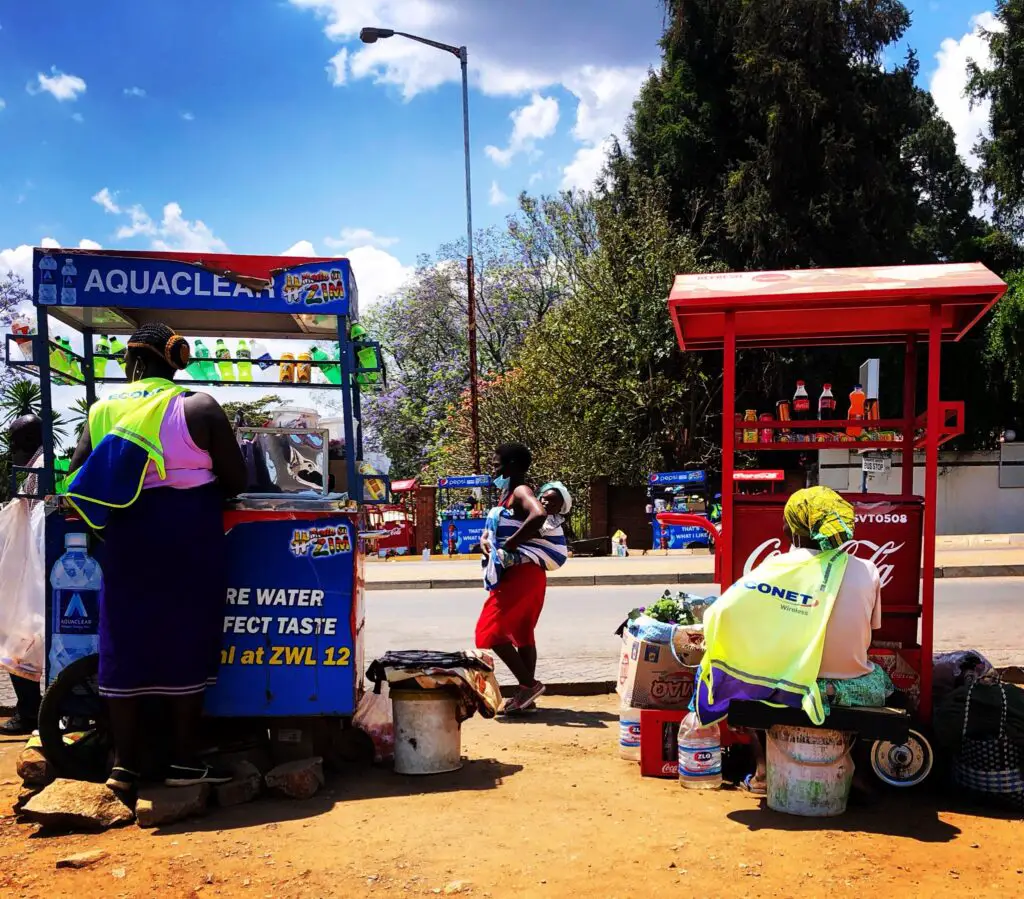
[newZWire.live]
Market Analysis
Varun Beverages, a subsidiary of PepsiCo, is threatening Delta Corporation’s market position in non-alcoholic beverages with an aggressive market penetration strategy.
Varun is on an aggressive urban assault to capture more market share and challenge the drinks giant. This has seen licensed cart vendors selling soft drinks at every corner in town. This simple strategy has led to an exponential growth in the sale of Varun’s products.
Delta currently holds 55 per cent of the market in carbonated soft drinks.
Varun Beverages said that the recent construction of bottled water and cordial line has aided in assuring regular product supplies at the most economical pricing to Zimbabwean consumers.
According to recent study findings, Varun Beverages has proven to be a threat to Delta’s sparkling beverages segment through aggressive marketing undercutting Delta’s products.
Compared to Delta, Varun offers cheaper options whilst maintaining a consistent supply of products to the market. As a result, Delta’s effervescent beverages division has been under pressure. Varun Beverages benefits from its special economic zone (SEZ) designation, which the company received in 2018.
The award is in force for five years. Some of the benefits of SEZ designation include priority access to foreign currency on the central bank auction system and a five-year corporate tax exemption. Varun Beverages’ SEZ status is set to expire in less than two years, which might lead to a rebound in Delta’s sparkling beverages market share beyond 60 per cent after 2023.
Under the Coca-Cola Bottler Agreement, Delta provides carbonated beverages. Following its recent acquisition of Mutare Bottling Company, it now has operations in Harare and Mutare. During the peak of foreign currency shortages in 2019 and 2020, Delta’s market share in carbonated soft drinks fell to 35 per cent.
According to Morgan & Co, a securities firm in Zimbabwe, the worldwide carbonated soft drinks industry is predicted to increase at a rate of 4.7 per cent in 2022, owing to customers’ preference for convenience. According to the report, the sector has adopted alternative sweeteners and environmentally friendly packaging due to growing awareness of the environment and the influence of sugar on consumers’ health.
Coca-Cola and PepsiCo are two of the industry’s most prominent players. Varun Beverages’ Soul Sip cordial line is a recent addition to the cordial market. Another Varun aggressive urban assault gaining market share. Mazoe, Schweppes’ leading brand, had contributed to the company’s 60 per cent market share. Varun’s new Soul Sip cordials have also seen an increase in demand in the market, owing to their low cost and unique flavours, which is because they are made entirely of sugar and include no sweeteners.






